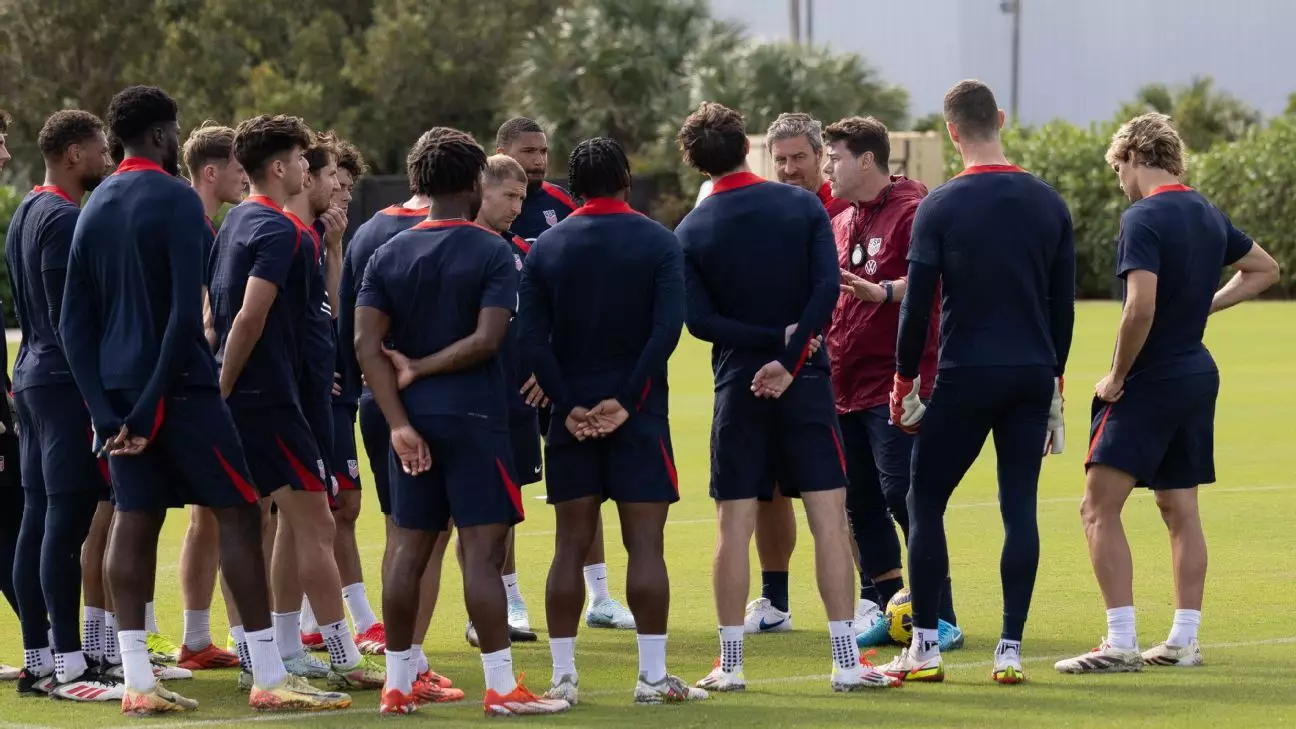In the world of soccer, the January camp for the United States Men’s National Team (USMNT) is often labeled as an informal or alternative gathering, but this perception is misleading. Under the guidance of head coach Mauricio Pochettino, the camp is framed not as a secondary team but as a critical platform for evaluating fresh talent. Historically scheduled outside the official FIFA international window, these January friendlies serve as an integral opportunity for players, especially those from Major League Soccer (MLS), to showcase their skills and potentially pave the way for future involvement with the national squad.
In a recent press conference leading up to a match against Costa Rica, Pochettino emphasized the significance of this gathering, stating, “I don’t like naming it an alternative team. For me, it’s the team with the circumstances of the moment.” This perspective shifts the focus from viewing the camp as a mere test for players on the fringes to acknowledging it as a genuine opportunity for individuals to assert themselves within the broader context of the national team. By selecting 24 players to face Venezuela and Costa Rica, Pochettino aims to cultivate a competitive atmosphere while allowing players to comprehend their potential and importance for the future of US soccer.
The January camp has historically played a significant role in shaping the roster for major tournaments. Since 2002, more than 30 players who debuted or earned their second cap during these winter sessions have found themselves on World Cup rosters. This fact highlights the camp’s value as a crucible for talent development and selection. During the last World Cup, nine players had their first or second appearance for the USMNT during the January friendlies, illustrating how this period can be transformative for emerging athletes.
Pochettino insists that the January camp is a golden opportunity for the technical staff to extend their understanding of available talent. The coach mentioned, “For us as a technical team, it’s a little more important because being able to extend the list of players we already know to select in the future is incredible.” This commitment to scouting and development underscores a crucial need for the national team to constantly refresh and rejuvenate its player pool.
One of the prominent aspects of Pochettino’s approach is the emphasis on developing confidence among players. He pointed out that while the technical staff is evaluating the players based on their performance in their respective clubs, nothing compares to the insights gained during the two-week training camp. This closer contact allows the coaching team to gauge the players’ attitudes, aspirations, and overall potential more accurately.
In the eyes of Pochettino, it is vital for players to feel that they belong to the team and that their contributions matter. He articulated, “They have to feel that they can also be important players.” This belief lays the groundwork for players to express themselves freely on the field, ultimately enhancing their performance levels.
The fruits of this comprehensive evaluation process were on full display during the recent friendly against Venezuela, where debutants Patrick Agyemang and Matko Miljevic made headlines by scoring their first international goals. Their contributions not only secured a 3-1 victory but also bears witness to the prospects being nurtured in the camp. With another opportunity against Costa Rica looming, the stakes are high for the players eager to make a lasting impact.
As the curtain draws on the January camp, it is clear that this season’s events hold substantial implications for USMNT’s future. Mauricio Pochettino has successfully reframed the narrative, showcasing the camp as a vital experiment in player assessment and development. By recognizing the value of this platform, players are more inclined to embrace their roles, knowing they might secure a cherished spot in the national team framework. With continued emphasis on fostering talent and promoting confidence, the USMNT is poised to unlock its full potential in the coming years.

